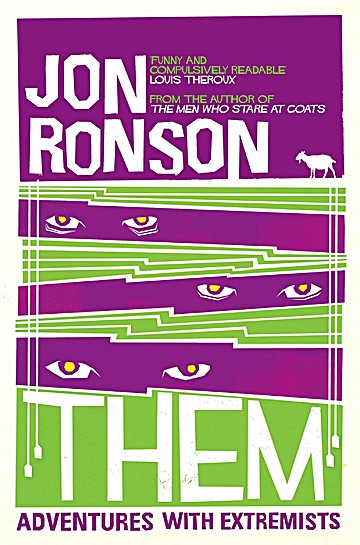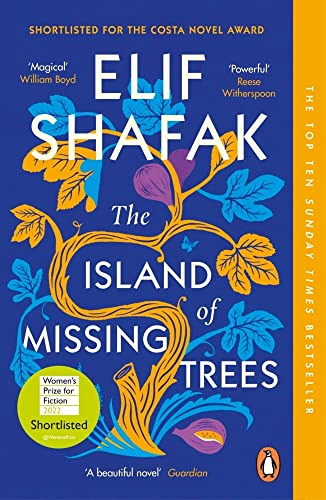Vaishnavi Patel’s Kaikeyi is a retelling of the Hindu epic Ramayana from the perspective of Queen Kaikeyi. It begins in Kaikeyi’s childhood, when a brutal disruption leads the princess to seek the help of the gods to put things right again. That help is not forthcoming, but what Kaikeyi discovers about herself in the process transforms her life. She ceases to be the overlooked only daughter of a king and becomes a woman who will do anything to make a better life for herself and other women.
Continue readingTag: Religion
Father May Be an Elephant, and Mother Only a Small Basket, But …
Gogu Shyamala’s collection of short stories uses allegory, magical realism and fable to document a rural childhood in the Indian state of Telangana. These tales are not whimsical, though, dealing with matters of caste, sexualisation of girls and the violence of poverty. They also reflect Shyamala’s politics, her involvement in Indian democratic movements and her activism, without this being overbearing. There is a lightness to the way Shyamala presents her stories.
Continue readingFlesh and Blood: A History of My Family in Seven Maladies
Flesh and Blood, Stephen McGann’s medical memoir of his family, is a book I was convinced that I had read, but I hadn’t. I’d read about it because of McGann’s work as a science communicator who has spoken at the Cambridge and Cheltenham Science Festivals, and bought it on Kindle where I promptly left it languishing in the digital doldrums.
McGann is from Liverpool, part of the troupe of acting brothers that includes Joe, Paul and Mark. The family traces its origins to Ireland, with an earlier generation emigrating to Liverpool in the mid-19th century as a result of the Great Famine. McGann appears in the tv show Call the Midwife, which I’ve never watched. His role as Dr Turner, alongside a childhood full of illness, sparked an interest in medical science, leading to him undertaking a Master’s degree in Science Communication. The introduction to the book is a wonderful combination of McGann’s artistic, actorly brain and his science brain. As an actor, his job is to tell stories by imagining himself into the character he is portraying, feeling his way into that character’s being. When he began researching his family history, he says he did the same, imagining what might fill the flesh and blood gaps in the documentary data to try to form an idea of a recognisable personality for each ancestor he will never truly know. For this book, he has married that storytelling with his academic interest in the relationship between health and society.
Continue readingTHEM: Adventures with Extremists
Jon Ronson started to write profiles of people portrayed as extremists in the media in 1995. His book THEM: Adventures With Extremists was published in 2001, in the aftermath of the 11 September attacks on the USA. We are 28 years on from when Jon started his research and 21 on from where the concerns felt in the years following the Iraq Wars led us. I started to read this collection wondering what might have changed in the last two or three decades.
Continue readingRobert Tressell’s The Ragged Trousered Philanthropists: A Graphic Novel
Robert Tressell’s The Ragged Trousered Philanthropists is a socialist classic and, despite studying Economic and Social History as an undergraduate on the subject matter it draws from and the fact that I was convinced that I owned a copy until I couldn’t find it, I haven’t read it. So when I saw the graphic novel adaptation of it by the Rickard Sisters in my local independent bookshop, I bought it.
The Manchester branch of Blackwell’s bookshop is running a reading challenge this year. I’d initially thought that I’d read The Making of a Marchioness by Frances Hodgson Burnett towards January’s theme of a classic I’d never read before, but it struck me that this graphic novel version of a classic would be a twist on that. So here we have it.

The Island of Missing Trees
Elif Shafak’s part-magical realism novel about family, ancestry, war and the inner thoughts of trees is a wonderful wintery read. The Island of Missing Trees crossed my path thanks to Emma’s review at Em with Pen. Emma’s thoughts on the novel made me want to read it, so I reserved it at the library.
The story starts with a history of an island divided by war. The island is Cyprus, its long history bound up with legend, its recent history one of violence. In a well lies a pocket watch and the chained together bodies of the joint owners of a tavern. The tavern is significant to the story in this novel.
Continue readingJapanese Fairy Tales
Yei Theodora Ozaki’s translated compendium of Japanese fairy tales is a charming read. Published in 1903 and now out of copyright, I got mine from the Kindle store a while ago for free. It’s also available to download or read for free on Project Gutenberg.
In her introduction, Ozaki explains that she wanted to bring the world of Japanese fairy tales to a western audience and her selection of twenty-two stories is based on Sadanami Sanjin/Sazanami Iwaya’s Meiji era collection for children, with a few tales from other sources. Ozaki rewrote the stories into English with a younger audience in mind. While some are gentle in tone, the fact that they are for children is no guarantee that violence and brutality won’t make an appearance. Some of the stories are quite shocking and upsetting in their cruelty. I suppose an argument can be made that nature and the world are cruel and brutal things, and these stories are reflections of that. I don’t think it’s a collection that I would put in front of a child today, despite knowing what I was like as a child and how much I loved spooky stories.
Continue readingSaving Lucia
When I plucked Saving Lucia from my To Read pile, I wasn’t expecting another time travelling novel that takes imagination and rethinks reality. I also wasn’t expecting such a slim book to be so dense with ideas and feelings.
The Lucia of the title of Anna Vaught’s book is the daughter of James Joyce, incarcerated in St Andrew’s Hospital for Mental Diseases in Northampton in 1953. One of her fellow residents is the Honourable Violet Gibson, daughter of a Lord Chancellor of Ireland and famous for her attempted assassination attempt on Benito Mussolini. Violet makes it the work of her last few years to save Lucia from the pain of life in a psychiatric institution.
Continue readingNovellas in November 2022 – How did I do?







I did pretty well with this challenge. It’s the first time I’ve properly done Novellas in November. I’ve tagged the odd novella that I’ve happened to read in November before, but never followed the prompts. I enjoyed it. It made me think about my reading more strategically and helped me to knock six titles off my To Read pile.
Continue readingAmerican Pastoral
American Pastoral is the novel that won Philip Roth the Pulitzer Prize. It’s also the first novel I’ve read by him. It recounts the life of a high school athlete, Seymour ‘Swede’ Levov, from his schooldays during the Second World War to a point in his adulthood where his daughter’s countercultural leanings disrupt his American idyll.
People speak highly of Philip Roth. As well as the aforementioned Pulitzer Prize, he also received multiple PEN/Faulkner awards. His complete novels were published in his lifetime, in a nine-volume series, by the Library of America. I only really paid attention when he died, though. Until then, I hadn’t even heard of him. Or if I had, his name and status hadn’t registered. It’s a funny old literary world, full of reading lacunae.
The first few pages of American Pastoral put me in mind of John Updike and Richard Ford, but better. There’s also a bit of Ray Bradbury about the writing, particularly his Green Town books. Roth’s phrasing has a beautiful rhythm that carries you like a river burbling through the story. Roth also managed to make me care about something that I really don’t care about – the very male world of competitive sport.
Continue reading







